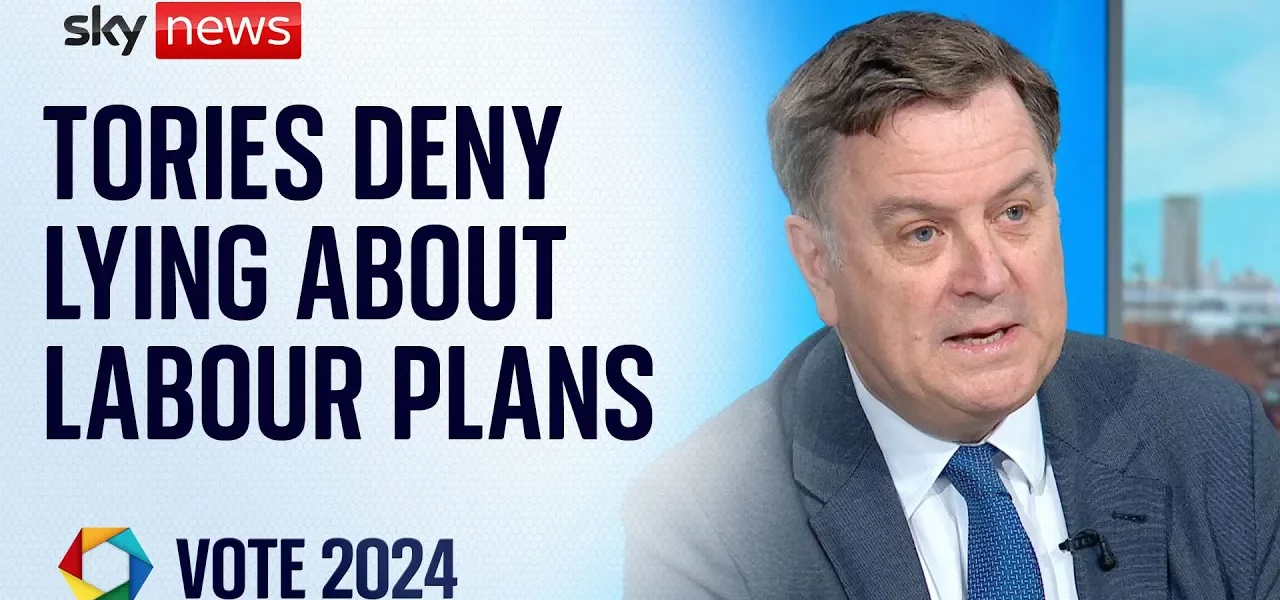Mel Stride Discusses Labor Tax Plans and Economic Implications

In a recent interview, Mel Stride, the working pension secretary, examined the implications of the Labour Party’s proposed economic policies. He asserted that their plans could result in significant tax increases for working households across the UK, a claim that has ignited considerable debate. This article delves into Stride’s assertions, the reactions from various political factions, and the broader economic context surrounding these claims.
Introduction to the Economic Debate
The landscape of UK politics is currently dominated by discussions surrounding economic policies as the general election looms closer. Mel Stride, a prominent figure in the Conservative Party, has made headlines by asserting that the Labour Party’s financial commitments would lead to an overwhelming tax burden on families. This article aims to dissect Stride’s claims, the validity of the statistics presented, and the implications for the average household.
Understanding the $22,000 Tax Burden Claim
Stride’s assertion that the Labour Party’s plans could result in a tax rise equivalent to £22,000 per family is grounded in a detailed analysis of their proposed commitments. Here’s how he arrived at this figure:
- Stride compiled a list of commitments likely to be included in Labour’s manifesto.
- He calculated the total cost of these commitments over the duration of the next Parliament, amounting to £38.5 billion.
- After assessing the expected revenue increases from Labour’s proposals, he determined the net difference.
- This figure was then divided by approximately 15 million working households, leading to the projected tax burden of just over £2,000 per household.
This method of calculation, while detailed, has raised questions regarding its accuracy and the assumptions made. Critics argue that such figures can be misleading without proper context.
Reactions from the Opposition
The UK Statistics Authority has initiated a review of Stride’s claims, which adds a layer of scrutiny to the assertions made by the Conservative Party. Key points of contention include:
Concerns of Misrepresentation
Stride maintains that his figures are based on rigorous analysis, even as the Treasury’s civil servant cautioned against attributing the claims directly to government analysis. He argues:
- The report clearly outlines the methodology used to derive the figures.
- Many of the statistics used are indeed supported by Treasury analysis, lending them credibility.
The Role of Historical Context
Critics of the Conservative Party’s claims note that similar economic assertions have been made in previous elections. For instance, Alistair Darling, the Labour Chancellor in 2010, adopted a comparable analytical approach. This historical precedent raises questions about the cyclical nature of such political strategies.
Broader Economic Context
Beyond the immediate claims surrounding tax burdens, Stride points to broader economic challenges faced by the UK, including:
Impact of External Events
The economy has been significantly affected by:
- The COVID-19 pandemic, which resulted in a 10% contraction of the economy.
- The ongoing conflict in Ukraine, which has led to surging inflation rates.
Stride argues that the government’s response to these challenges, which included significant financial support measures, necessitated subsequent tax increases to stabilize the economy.
Tax Increases and Their Implications
Since the last election, UK citizens have reportedly faced an additional £13,000 in taxes, a statistic that Stride uses to argue that the current government’s financial strategies are necessary for long-term economic recovery. He emphasizes the following points:
- Support for businesses and individuals during the pandemic through furlough schemes.
- Recent tax relief measures, such as the cut in National Insurance for millions of workers.
- Plans to maintain the triple lock on pensions, ensuring pensioners are not unduly taxed.
Conclusion and Future Implications
As the general election approaches, the debate surrounding tax policies and economic strategies will continue to intensify. Mel Stride’s claims regarding Labour’s potential tax burdens have sparked significant discussions about the sustainability of current financial commitments and the future trajectory of the UK economy. It remains crucial for voters to critically evaluate these claims and the underlying data. As the election draws nearer, the choices made by the electorate will have lasting implications for the nation’s economic future. For more insights on this topic, check out our related articles on [UK Economic Policies](#) and [The Role of Statistics in Politics](#).
“`




